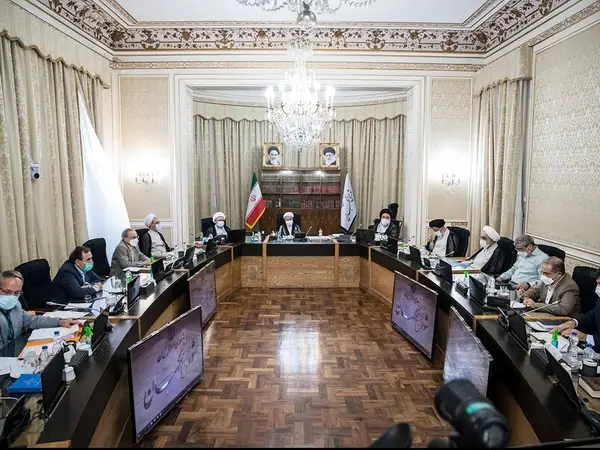Less than four months before Iran’s parliamentary elections, there is still a lot of confusion among various political groups about the vetting of candidates.
The Iranian regime has established a politically charged vetting process, which has grown progressively capricious and opaque, preventing even loyal politicians from becoming candidates.
Reformists and moderate conservatives are deeply skeptical about the fairness of this vetting process. They accuse the Interior Ministry and Guardian Council of arbitrarily disqualifying all but the ultraconservative candidates. They describe this process as “engineering the elections.”
This week, Ezzatollah Yousefian Molla, a former centrist lawmaker, claimed that individuals from former President Mahmoud Ahmadinejad’s inner circle and some members of the ultraconservative Paydari Party, which aims to secure the majority of seats in the Iranian parliament (Majles), have infiltrated the executive committee of the Interior Ministry. This committee is responsible for shortlisting over 24,000 candidates who have registered for the elections scheduled for March 1.
Molla said in an interview with Khabar Online website in Tehran that the vetting should take place in an atmosphere that would not be indicative of any bias in favor of a certain political group. He argued that the executive committee is exhibiting such bias that all candidates are now hoping for a fair evaluation by the Guardian Council, although the Guardian Council is notorious for arbitrary disqualifications in Iran’s political circles.
Molla also pointed out that none of the candidates are aware of who their political rivals are because the new election law has classified the candidates’ list as confidential. This issue needs addressing.
Recently, Interior Minister Ahmad Vahidi announced the names of the members of the executive committee, including a range of ultraconservative former officials, many of whom were Ahmadinejad’s cabinet ministers with links to the Paydari Party, allied with Ahmadinejad during the first round of his presidency (2005-2009). Others in the committee include traditional conservative figure and former Trade Minister Yahya Al-e Es’haq and a few other less well-known individuals. The minister characterized the committee members as “popular” figures.
Outspoken former lawmaker Gholam-Ali Jafarzadeh Imanabadi also expressed concern about nearly all of the committee members’ link to Paydari. He said the combination of the committee was indicative of Paydari’s deep infiltration of the Interior Ministry ahead of the election.
At the same time, while some reformists and moderates still wish to take part n the elections and form at least a minority in the next Majles, the main competition appears to be taking place among ultraconservatives and Majles Speaker Mohammad Bagher Ghalibaf’s inner circle who call themselves “neo-cons.”
For the first time Ghalibaf has given his political group a name: The Association of Awakened Revolutionaries. According to Etemad newspaper, the group recently held its “congress,”, however, President Ebrahim Raisi refused to accept Ghalibaf’s invitation to be present at the congress, where the most prominent guest was former Majles Speaker Gholam Ali Haddad Adel. Etemad wrote that Raisi’s absence was a clear sign of his rivalry with the new group.
Sobh-e No, a newspaper linked to Ghalibaf said 4,000 people took part in the congress, several sources pointed out that venue where it was held could accommodate a maximum of 800 people. Sobh-e No, sarcastically labeled those who refused to attend the new group’s congress “political outcasts.”
Outspoken ultraconservative cleric Hamid Rasai criticized Ghalibaf’s team and said the meeting cost a lot of money and it is not clear how much more Ghalibaf is going to spend on his campaign before the elections in the next four months. Other conservative figures such as political commentator Mohammad Mohajeri called on Ghalibaf to be transparent on the costs of his group’s congress.
In another development, IRGC’s newspaper, Javan, criticized Paydari, Ghalibaf and other conservative figures and political groups for their “illogical and biased” behavior, including their mutual mudslinging.
On a lighter note, conservative candidate Mohammad Reza Bahonar, who recently voiced concern about his potential disqualification by the Guardian Council, has promised in an interview to help the reformists to get through the Council’s vetting process. His move hints at the possibility of an alliance with reformists and resembles the Persian proverb: “If the bald man was a good doctor, he should have first tried to grow hair on his own skull.”






















